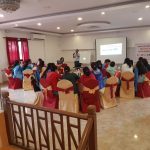
CALLNG ALL ACADEMICS WHO WISH TO ENGAGE WITH BUSINESSES!
Staff are invited to attend the:
‘Knowledge Transfer Partnerships (KTP) and SMART awards events’
Both these schemes are UK-wide programmes funded by the Technology Strategy Board.
-
KTP provides academics with opportunities for the practical application of their research. Importantly, they are an opportunity for academics to engage with the business community.
-
SMART awards assist businesses to engage in research & development projects in areas such as science, engineering and technology, from which successful new products, processes and services can emerge. Whilst universities may not apply directly, they may act as a sub-contractor to an applicant.
If you are interested in learning more about KTP and SMART awards, please come along to one of the following events:
Event Dates:
Friday 26th April Breakfast Meeting – Talbot Campus (KG103) – 8.30am – 10.30am
ktpbreakfast2013.eventbrite.co.uk
Tuesday 30th April Executive Business Centre (7th Floor) – Lansdowne – 6pm – 8pm
ktpandsmart2013.eventbrite.co.uk
(To book your place – just go to the ‘Eventbrite link’ listed under each date. There are only a limited number of spaces left, so please book asap to avoid missing out)
- Local businesses are going to be invited to attend these sessions too, which will provide a valuable opportunity for academics to network and develop potential working relationships with them.
For further information, please contact Lucy Rossiter.











 Up2U: New BU academic publication
Up2U: New BU academic publication New BU midwifery paper
New BU midwifery paper BU academic publishes in online newspaper in Nepal
BU academic publishes in online newspaper in Nepal Final day of the ESRC Festival of Social Science
Final day of the ESRC Festival of Social Science Using Art to enhance Research
Using Art to enhance Research ECR Funding Open Call: Research Culture & Community Grant – Application Deadline Friday 12 December
ECR Funding Open Call: Research Culture & Community Grant – Application Deadline Friday 12 December MSCA Postdoctoral Fellowships 2025 Call
MSCA Postdoctoral Fellowships 2025 Call ERC Advanced Grant 2025 Webinar
ERC Advanced Grant 2025 Webinar Horizon Europe Work Programme 2025 Published
Horizon Europe Work Programme 2025 Published Horizon Europe 2025 Work Programme pre-Published
Horizon Europe 2025 Work Programme pre-Published Update on UKRO services
Update on UKRO services European research project exploring use of ‘virtual twins’ to better manage metabolic associated fatty liver disease
European research project exploring use of ‘virtual twins’ to better manage metabolic associated fatty liver disease